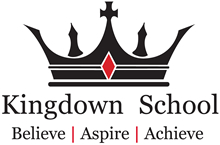8 Online shopping – what it means
Shopping online is already very big business, and is growing rapidly. This suggests that the concerns of consumers discussed earlier are being addressed by the industry. People wouldn't shop online if they didn't trust it. But in a way the most profound impact of online retailing is being experienced in the ‘real’ world. According to the Economist magazine, for example, the Internet is profoundly changing consumer behaviour in the real world.
One in five customers walking into a Sears department store in America to buy an electrical appliance will have researched their purchase online – and most will know down to a dime what they intend to pay. More surprisingly, three out of four Americans start shopping for new cars online, even though most end up buying them from traditional dealers. The difference is that these customers come to the showroom armed with information about the car and the best available deals. Sometimes they even have computer print-outs identifying the particular vehicle from the dealer's stock that they want to buy.
The same source reports a study by the consultancy firm Forrester Research which found that half of the 60 million consumers in Europe who have an Internet connection bought products offline after having first investigated prices and details online, and that different cultures had different habits. In Italy and Spain people are twice as likely to buy offline as online after researching on the Internet. But in Britain and Germany the numbers are more evenly balanced. Forrester reports that people begin to shop online for simple, predictable products, such as DVDs, and then graduate to more complex items. The strangest thing of all is that used-car sales are now one of the biggest online growth areas in America.
What this suggests is that the true economic significance of online shopping is finally beginning to emerge. Economists have always been interested in the phenomenon because they saw it as the beginning of more efficient markets. Although there is competition in all retailing markets, it is less than perfect because consumers are located in fixed locations (the fact that something is much cheaper in Aberdeen is no consolation if you live in Brighton) and because it takes time and effort (walking round shops) in order to compare prices. But with the Web – and free online price-comparison services like those provided by Kelkoo, Pricerunner, and SNAP.co.uk – it has become very easy to see who's selling what for less. This means that selling on the Web is intrinsically likely to be more competitive – because the cheaper price is only a click away. But it also means that retailers in the real world are having to compete not just with other shops in their locality, but with stores in Cyberspace.
Overall, the evolution of online shopping suggests that the real and virtual worlds are converging in interesting ways. Some of the UK's most successful online shopping operations, for example, are owned and run by bricks-and-mortar companies like Tesco. Some stores have online terminals in which customers can order (online) goods they have just seen and handled in the offline store – which suggests that we may get to a point where many retail stores are basically just showrooms for products which are then ordered online.
Do this
Now you have completed this unit, you might like to:
- Post a message to the unit forum.
- Review or add to your Learning Journal.
- Rate this unit.
Try this
You might also like to:
- Find out more about the related Open University course
- Book a FlashMeeting to talk live with other learners
- Create a Knowledge Map to summarise this topic.
